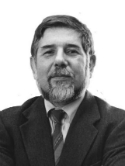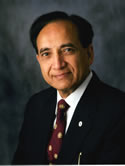Initial results from a prospective cohort study of 5583 cases of thyroid carcinoma treated in the United States during 1996: An American College of Surgeons Commission on Cancer Patient Care Evaluation study Journal Article
| Authors: | Hundahl, S. A.; Cady, B.; Cunningham, M. P.; Mazzaferri, E.; McKee, R. F.; Rosai, J.; Shah, J. P.; Fremgen, A. M.; Stewart, A. K.; Hölzer, S. |
| Article Title: | Initial results from a prospective cohort study of 5583 cases of thyroid carcinoma treated in the United States during 1996: An American College of Surgeons Commission on Cancer Patient Care Evaluation study |
| Abstract: | BACKGROUND. The American College of Surgeons Commission on Cancer (CoC) has conducted national Patient Care Evaluation (PCE) studies since 1976. METHODS. Over 1500 hospitals with CoC-approved cancer programs were invited to participate in this prospective cohort study of U.S. thyroid carcinoma cases treated in 1996. Follow-up will be conducted through the National Cancer Data Base. RESULTS. Of the 5584 cases of thyroid carcinoma, 81% were papillary, 0% follicular, 3.6% Hurthle cell, 0.5% familial medullary. 2.7% sporadic medullary, and 1.7% undifferentiated/anaplastic. Demographics and suspected risk factors were analyzed. Fine-needle aspiration of the thyroid gland (53%) or a neck lymph node (7%), thyroid nuclear scan (39%), and ultrasound (38%) constituted the most frequently utilized diagnostic modalities. The vast majority of patients with differentiated thyroid carcinoma presented with American Joint Committee on Cancer Stage I and II disease and relatively small tumors. For all histologies, near-total or total thyroidectomy constituted the dominant surgical treatment. No lymph nodes were examined in a substantial proportion of cases. Residual tumor after the surgical event could be documented in 11% of cases, hypocalcemia in 10% of cases, and recurrent laryngeal nerve injury in 1.3% of cases. Complications were most frequently associated with total thyroidectomy combined with lymph node dissection. Thirty-day mortality was 0.3%; when undifferentiated/anaplastic cancer cases were eliminated, it decreased to 0.2%. Adjuvant treatment, probably underreported in this study, consisted of hormonal suppression (50% overall) and radioiodine (50% overall). CONCLUSIONS. In addition to offering information concerning risk factors and symptoms, the current PCE study compliments the survival information from previous NCDB reports and offers a surveillance snapshot of current management of thyroid carcinoma in the U.S. Identified opportunities for improvement of care include 1) more frequent use of fine-needle aspiration cytology in making a diagnosis; 2) more frequent use of laryngoscopy in evaluating patients preoperatively, especially those with voice change; and 3) improved lymph node resection and analysis to improve staging and, in some situations, outcomes. [See commentary on pages 1-4, this issue and communication on pages 192-201, this issue. (C) 2000 American Cancer Society. |
| Keywords: | adult; treatment outcome; aged; middle aged; major clinical study; histopathology; united states; follow-up studies; neoplasm staging; lymph node excision; prospective studies; cohort studies; carcinoma, papillary; risk factors; risk factor; cancer hormone therapy; health insurance; biopsy, needle; thyroidectomy; surgery; complications; thyroid carcinoma; thyroid neoplasms; hormonal therapy; papillary carcinoma; wound infection; adenocarcinoma, follicular; hypocalcemia; follicular carcinoma; recurrent laryngeal nerve palsy; hürthle cell carcinoma; adjuvant treatment; anaplastic cancer; humans; prognosis; human; male; female; priority journal; article; iodine- 131; undifferentiated cancer |
| Journal Title: | Cancer |
| Volume: | 89 |
| Issue: | 1 |
| ISSN: | 0008-543X |
| Publisher: | Wiley Blackwell |
| Date Published: | 2000-07-01 |
| Start Page: | 202 |
| End Page: | 217 |
| Language: | English |
| DOI: | 10.1002/1097-0142(20000701)89:1<202::aid-cncr27>3.0.co;2-a |
| PUBMED: | 10897019 |
| PROVIDER: | scopus |
| DOI/URL: | |
| Notes: | Export Date: 18 November 2015 -- Source: Scopus |
Altmetric
Citation Impact
BMJ Impact Analytics
Related MSK Work




